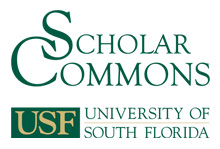Content Language
ES
Abstract
The purpose of this chapter is to explore the full implications of the fact that the bio-zombie apocalypse in [Rec]2 is a state of emergency that combines viral infection and supernatural possession, a hybrid of the natural and the otherworldly. While in Rec the emphasis is placed on the need to survive, and the anxiety of the survivors that have no real understanding of what is happening, in [Rec]2 the directors invite us to consider to what extent secularization is nothing but the repression of the sacred and how patriarchal authority figures (the priest and the militarized police officers) evoke a genocidal National-Catholic past in Spain. After examining how the film handles the National-Catholic underpinnings of post-Francoist Spain, I turn to the film’s contribution to contemporary debates about historical memory. What happens when the work of memory is performed not by a Derridean ghost, but by a biozombie that wants to bite and transfer the zombie virus to the seemingly healthy? What is the status of the traumatic past when the figures that stand for the victims of genocide are abject cannibals that make all project of coexistence impossible? By studying the ways in which Rec 2 mixes the original magic dimensions of zombies, creatures under the control of a seemingly supernatural agency, and the contemporary secularized tropes of bio-zombie narratives, I will show that the filmmakers turn the audience’s attention to the theological underpinnings of the contemporary Spanish state, and use the conventions of the zombie apocalypse to reenact and work through Spanish historical trauma and open the field to the terrifying and tantalizing picture of a post-apocalyptic and post-traumatic Spanish society.
DOI
http://dx.doi.org/10.5038/2167-6577.6.1.3
Creative Commons License

This work is licensed under a Creative Commons Attribution-Noncommercial 4.0 License
Custom Sort Order
03
Recommended Citation
Córdoba, Antonio
(2018)
"Los niños perdidos zombis: La España postsecular y los descontentos con la memoria histórica en [REC]2,"
Alambique. Revista académica de ciencia ficción y fantasía / Jornal acadêmico de ficção científica e fantasía: Vol. 6
:
Iss.
1
, Article 3.
http://dx.doi.org/10.5038/2167-6577.6.1.3
Available at:
https://digitalcommons.usf.edu/alambique/vol6/iss1/3
